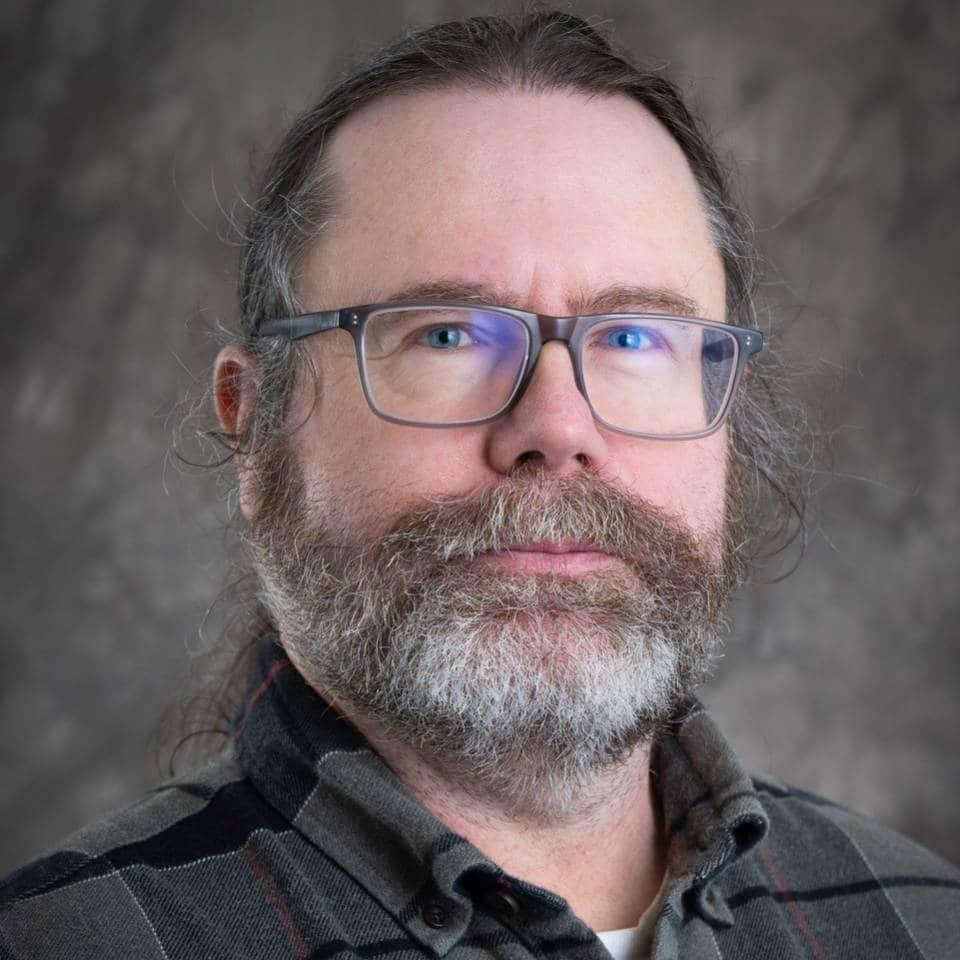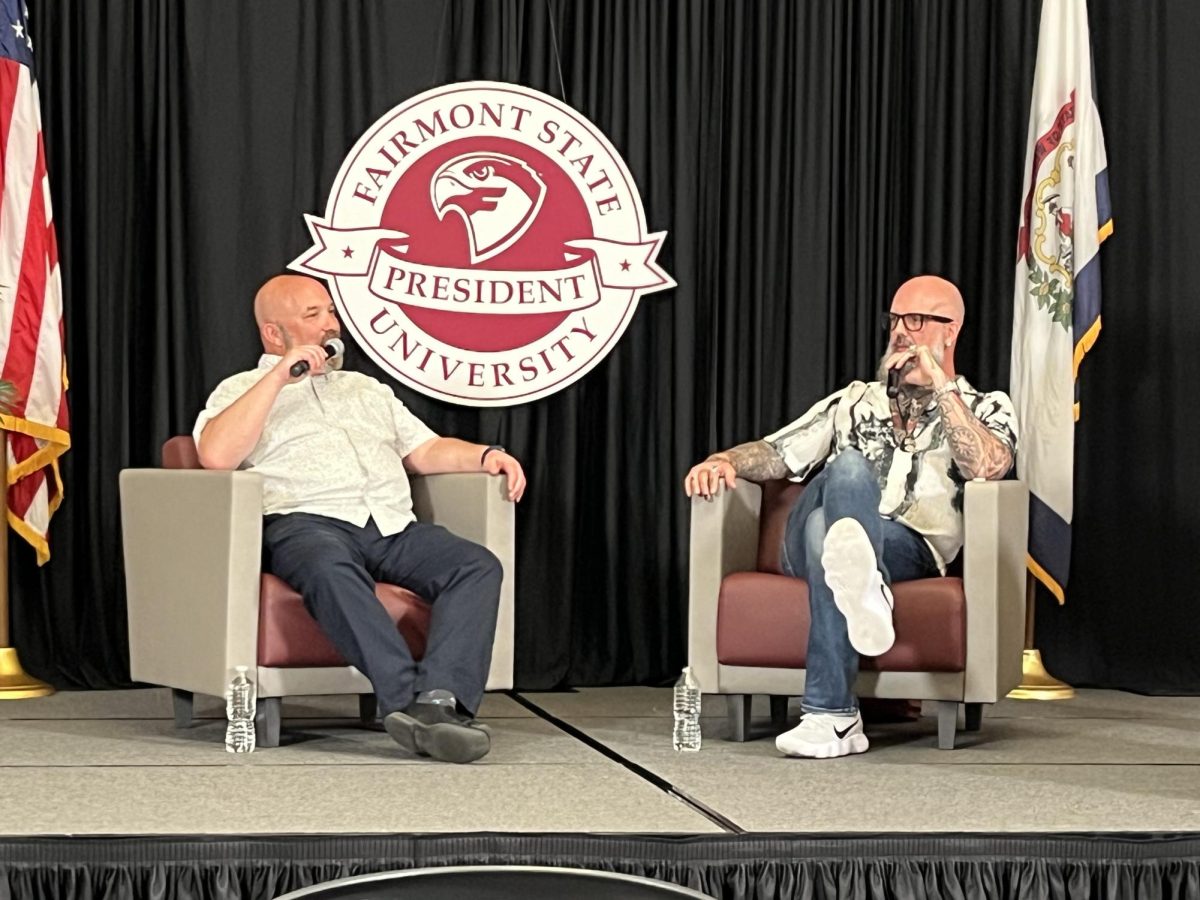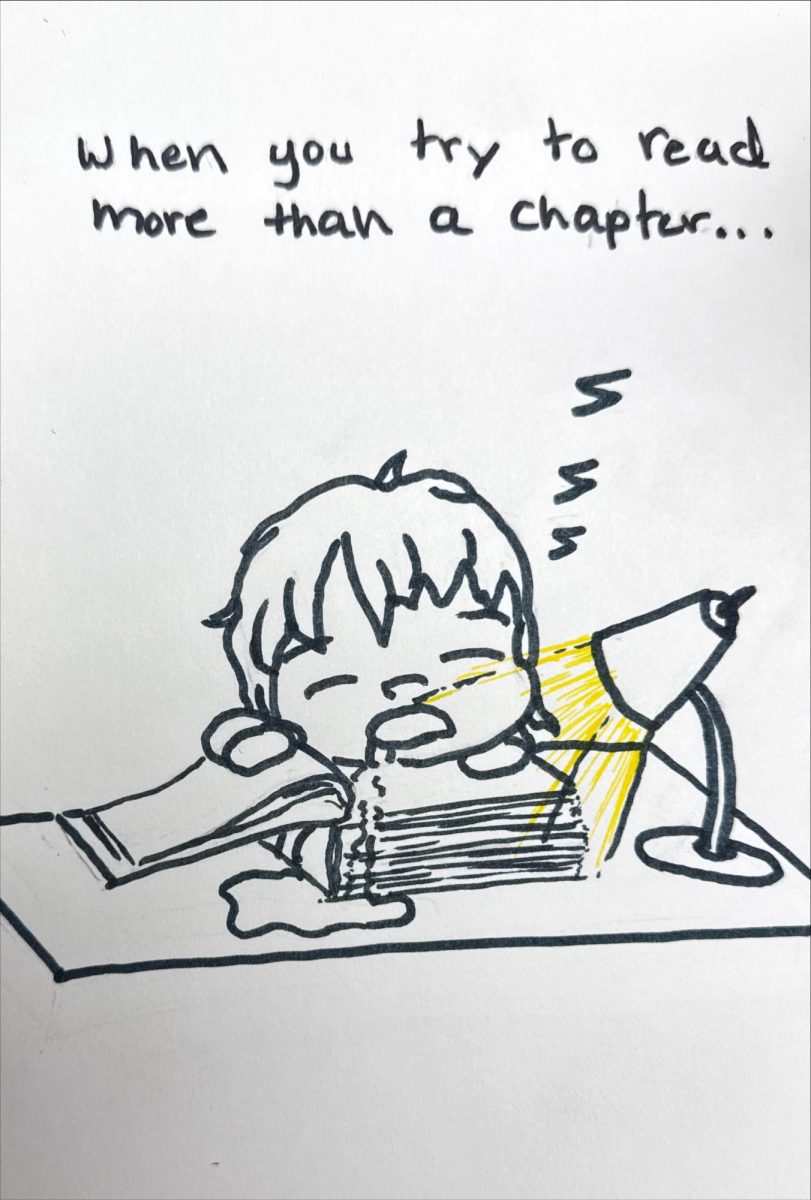Continuing the COLUMNS Professor Interview series, student writer Quinn Arzt had a chat with English Professor Dr. Matthew Hokom. Fairmont State University professors are tasked with guiding students in pursuing their higher education, reaching their academic potential, and planning for their future. Professional educators do not typically have the opportunity to discuss their research and publications in their semester load, and many students do not get to learn about what truly interests them. Over the second half of the Fall 2024 semester, the Professor Interviews series COLUMNS provides them with the opportunity to share their stories and advice with students. Dr. Matthew Hokom has been a Professor of English at Fairmont State University since 2001. Dr. Hokom got his Bachelor’s degree in English, two Master’s degrees, one in English and one in Classics (Ancient Greek and Roman Cultures), and a PhD in English. He mostly teaches core classes including English Composition 1 and 2 and World Literature 1 and 2. Dr. Hokom also teaches major classes such as American Literature.
A Sabbatical is defined as a period of time granted for a faculty member to engage in scholarly research or other activities that enhance their academic achievement and service to the institution. The name “Sabbatical” comes from the Hebrew word sabbath, the day of the rest in Abrahamic cultures. Generally, this time is designed to allow faculty members an opportunity for intellectual pursuits and research such as writing, traveling, experimenting, or otherwise engaging in activities that benefit their academic careers and the university as a whole, as well as providing for rest from on-campus duties like teaching and committees. Not every college offers these kinds of opportunities, and fortunately Fairmont State University is a college that provides the option for full-time faculty to apply for one of two sabbaticals a year. These sabbaticals are one semester long, and those who choose to pursue one focus on scholarship and research to improve both your field, your institution, and career. Dr. Matthew Hokom was one of the two professors who received a Sabbatical for the Fall 2024-Spring 2025 academic year. He would argue that research is an integral part of being a professor, whether it is through a sabbatical or time set aside specifically for academic pursuit. Fairmont requires a heavy teaching and service load to maintain its educational standards, and taking a semester to research a topic that interests you is a good way to stay connected to the scholarship side of a professor’s job while also helping to prevent burnout. This will be his second sabbatical, in his first Dr. Hokom investigated author Willa Cather and how Hellenistic philosophy impacted her novels, such as skeptic philosophy, a topic that continues to interest him.
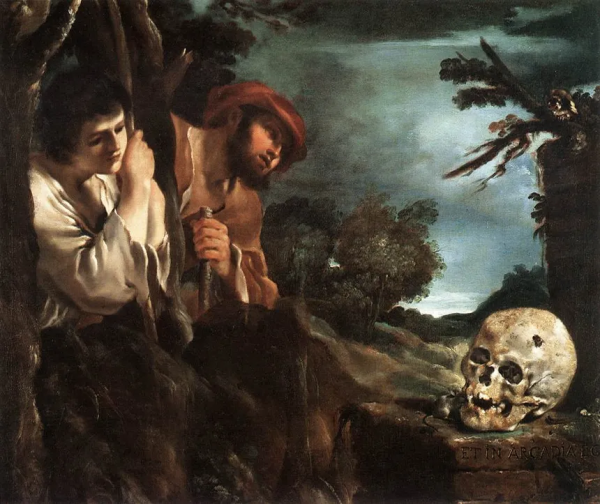 For his sabbatical in the Spring of 2025, Dr. Hokom will be studying Appalachian author Willa Cather’s work and her usage of the Antiquity (ancient Greek and/or Roman) trope “Et ego an arcadia est”, which translates to mean “Even in Arcadia there is death”. The basic concept of this literary and artistic trope is that mortality is omnipresent, even in the most ideal and peaceful environments like Arcadia, a mountain place in central Greece that was seen as an idealized perfect location in ancient Greece where everything is amazing. Two of the most famous paintings that depict this idea are “The Arcadian Shepherds” and “Et in Arcadia ego est” by French artist Nicolas Poussin during the Baroque period in the mid-1600s. When describing his plans for his research, Dr. Hokom explained that Cather wrote “Pastoral Poetry”, a genre of poetry that focuses on nature as an idealized settings such as a perfect rural landscape, and many of her works were agricultural works of fiction. These locations often mimicked the Greek idea of Arcadia, and much like how antiquity writers and artists would depict in their works, death always intrudes itself in some way in her “Arcadia”.
For his sabbatical in the Spring of 2025, Dr. Hokom will be studying Appalachian author Willa Cather’s work and her usage of the Antiquity (ancient Greek and/or Roman) trope “Et ego an arcadia est”, which translates to mean “Even in Arcadia there is death”. The basic concept of this literary and artistic trope is that mortality is omnipresent, even in the most ideal and peaceful environments like Arcadia, a mountain place in central Greece that was seen as an idealized perfect location in ancient Greece where everything is amazing. Two of the most famous paintings that depict this idea are “The Arcadian Shepherds” and “Et in Arcadia ego est” by French artist Nicolas Poussin during the Baroque period in the mid-1600s. When describing his plans for his research, Dr. Hokom explained that Cather wrote “Pastoral Poetry”, a genre of poetry that focuses on nature as an idealized settings such as a perfect rural landscape, and many of her works were agricultural works of fiction. These locations often mimicked the Greek idea of Arcadia, and much like how antiquity writers and artists would depict in their works, death always intrudes itself in some way in her “Arcadia”.
A main focus of Dr. Hokom’s 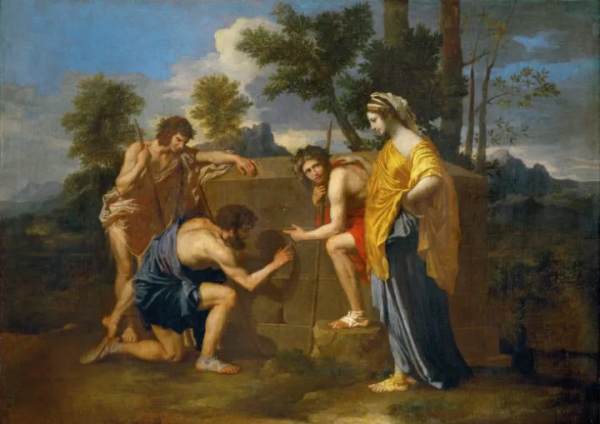 investigation will be on the presence of cemeteries and graveyards in Cather’s fiction, as he points out the prominent and impactful reappearance of these somber locations in many of her works. Dr. Hokom expresses his sadness that few people in the area are aware of Willa Cather’s work, as she lived between Winchester and Romney and was a notable Appalachian author. For anyone interested in her work, Dr. Hokom recommends “Sapphira and the Slave Girl” and ”My Ántonia”. A special thank you to Dr. Matthew Hokom for his time and participation in the Professor Interview series, and the COLUMNS wishes him a productive and restful sabbatical.
investigation will be on the presence of cemeteries and graveyards in Cather’s fiction, as he points out the prominent and impactful reappearance of these somber locations in many of her works. Dr. Hokom expresses his sadness that few people in the area are aware of Willa Cather’s work, as she lived between Winchester and Romney and was a notable Appalachian author. For anyone interested in her work, Dr. Hokom recommends “Sapphira and the Slave Girl” and ”My Ántonia”. A special thank you to Dr. Matthew Hokom for his time and participation in the Professor Interview series, and the COLUMNS wishes him a productive and restful sabbatical.



